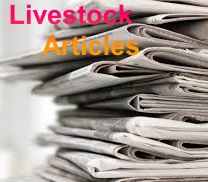Pushback Against EU’s ‘discrimination Against Wool’
Pushback against EU’s ‘discrimination against wool’
By Glenneis Kriel |14 June 2024 | 8:02 am
Proposed methodology to measure the environmental footprint of apparel and footwear are threatening the feature sustainability of natural fibres.
Deon Saayman, CEO of Cape Wools South Africa, says South African wool farmers are committed to sustainable production practices. Photo: FW Archive
At the National Wool Growers’ Association Congress recently held in Gqeberha in the Eastern Cape, the EU’s Product Environmental Footprint Category Rules (PEFCR) for apparel and footwear were identified as one of the biggest threats currently facing the natural fibres industry.
Dalena White, secretary-general of the International Wool Textile Organisation, said during a virtual presentation that the first version of the PEFCR was submitted for public consultation in 2021 and had since been integrated, with the new version being tested in practice by companies through what was called ‘Supporting Studies’.
Once finalised, PEFCR is set to help companies assess their products’ environmental footprints, evaluate the efficacy of their environmental policies, and substantiate any environmental claims they wish to make to consumers, as scoped within various forthcoming regulatory requirements.
The final methodology is expected to be presented for approval to the European Commission by the fourth quarter of this year, and companies would be able to start using the methodology after it is published, probably by the first term of 2025.
White said that the PEF as it stood favoured synthetic fibres, such as polyester, because it did not consider the key impacts of synthetic fibres on the environment:
“PEFCR cannot deliver on the European Green Deal Goals, because it does not tackle the problem of plastic waste, the release of microplastics into the environment or the fast fashion culture, which has resulted in people discarding clothing after it had been worn only seven to 10 times.”
Deon Saayman, CEO of Cape Wools South Africa, explained to Farmer’s Weekly that PEFCR primarily looked at the production area required to produce fibres, which was significantly smaller for synthetic fibres than to produce wool from sheep.
PEFCR, however, did not account for the durability, recyclability and low environmental impact of wool.
He said South African farmers had been committed to sustainable production practices for generations.
“You would not be able to survive the tough economic and environmental conditions associated with the wool market unless you are devoted to sustainable production practices. Farmers have to communicate this message more strongly from now on, and the industry has put measures in place to show proof of this and to reassure buyers.”








